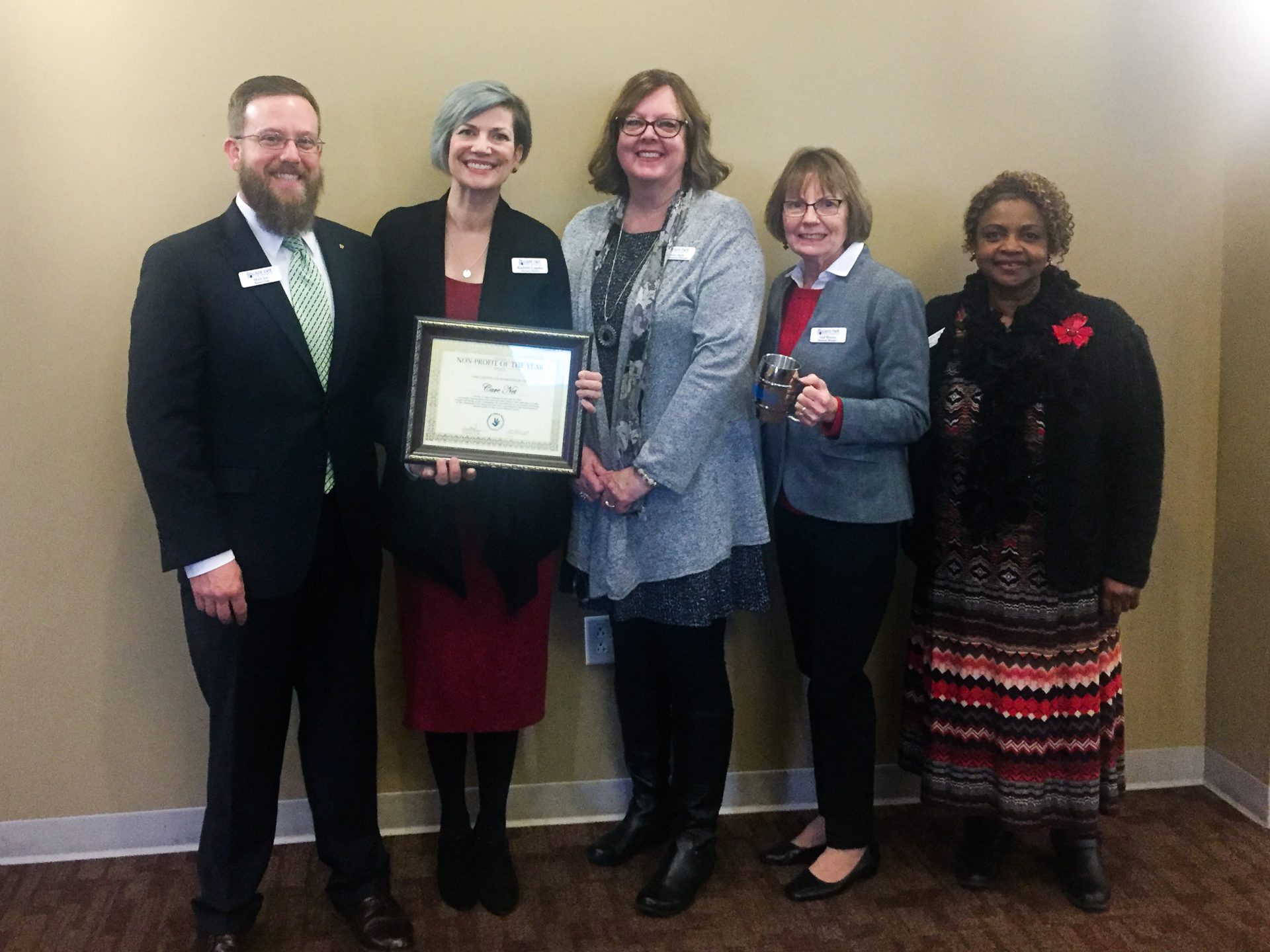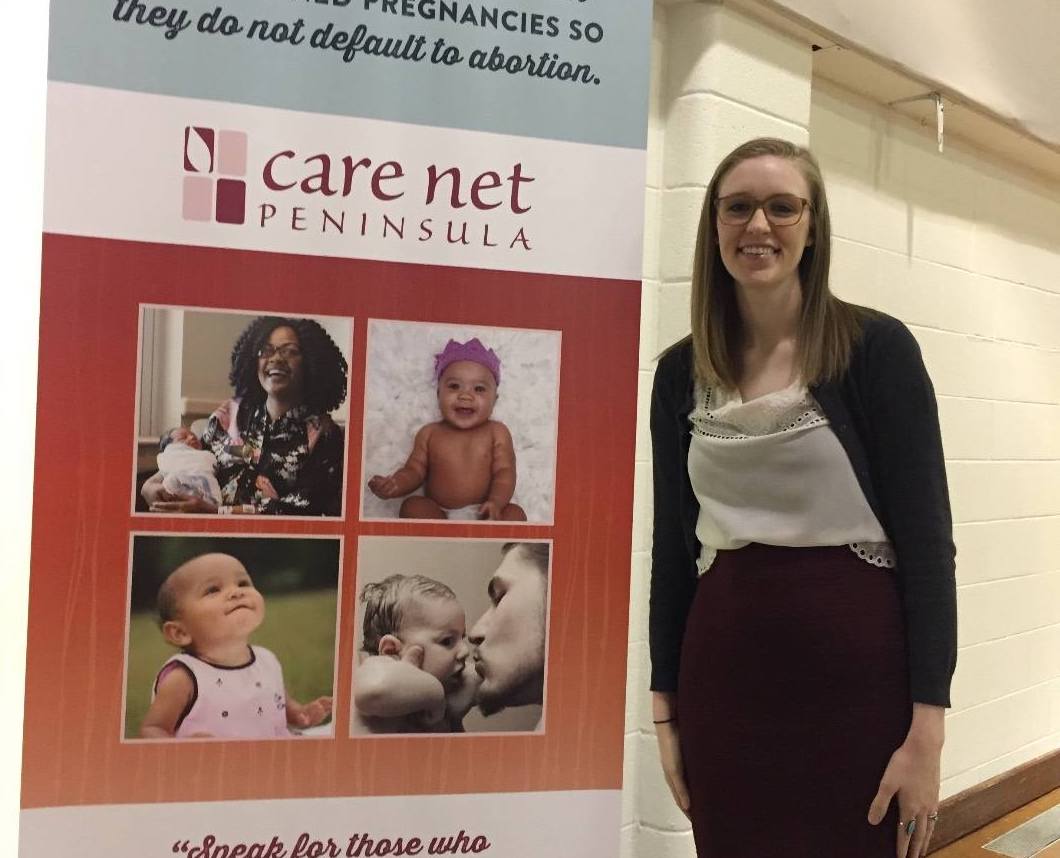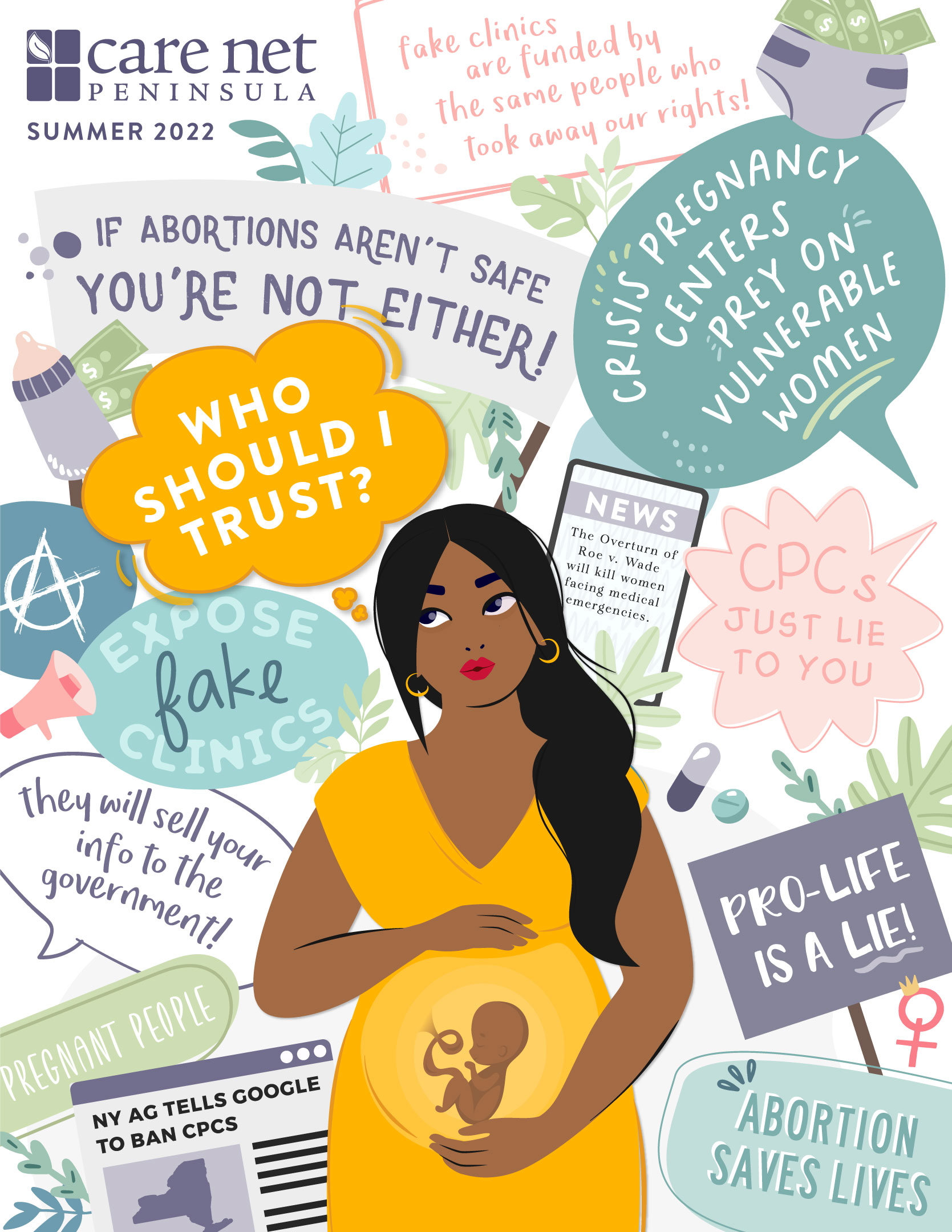
Summer 2022 Newsletter
Recently a friend of mine shared a personal story of how abortion impacted her. A relative was facing an unplanned pregnancy, and she had the opportunity to counsel her about what to do.
Her relative shared she was planning to have an abortion because she wasn’t ready to be a mom. However, she also shared that she wasn’t sure if that was the right choice and that her faith was part of the decision.
My friend listened and then encouraged her to keep the baby and to consider adoption if she wasn’t ready to be a mom. She noted the potential for guilt and anxiety if she went through with a decision she had doubts about. She also counseled her to consider her faith and what the Bible says about babies in the womb.
Her relative ended up choosing to keep the baby. My friend threw her a baby shower, invited her to church, and offered to continue to help however she could.
Here’s how the media would report about my friend:
Fake Therapist Targets Vulnerable Woman With Misinformation
OR
Forced-Birth Activist Claims Abortion Causes Mental Disorders
Biased and outright false critiques of pregnancy centers have been around for a long time. The difference right now is that the critics are holding the microphone.
Normally, I would dismiss it as noise and plow ahead. After all, I look to Christ for validation, not NBC News.
But the sheer volume of recent critiques paired with the crafty, nice-sounding ways they’re presented is enough for me to pause to respond to the most common myths you might be hearing.
I pray that every member of the Care Net Family: you, me, volunteers, and staff would remain steadfast and “not grow weary of doing good, for in due season will reap, if we do not give up.”


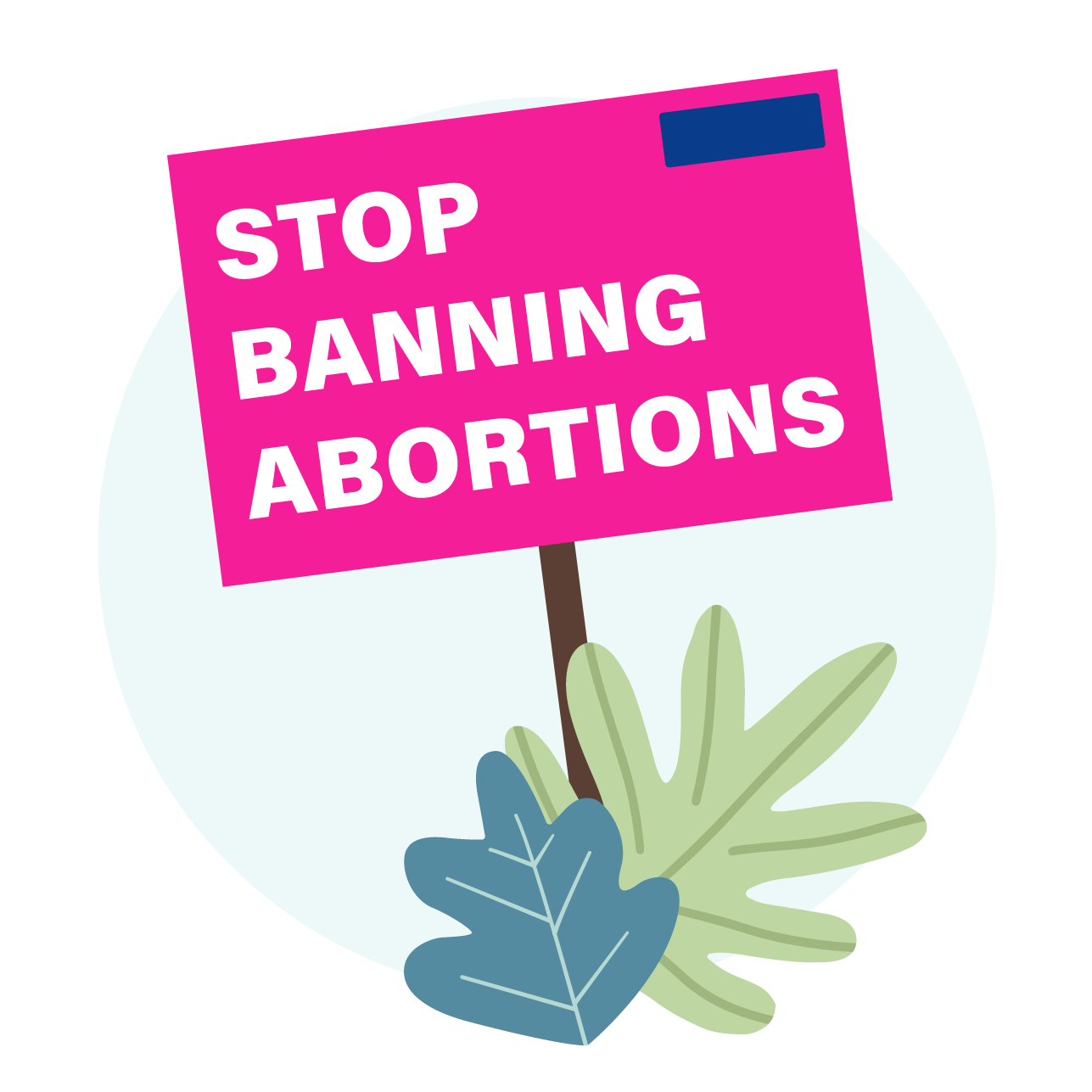
MYTH #1:
Overturning Roe ended abortion in Virginia
Overturning Roe will save thousands of babies this year, but not here in Virginia. The Supreme Court did not end abortion in America. Instead, they returned the decision to the states. In Virginia, abortion is still legal until the 25th week of pregnancy with almost NO restrictions.

MYTH #2:
"Crisis Pregnancy Centers mislead and deceive patients seeking abortion care."
This tweet from Senator Elizabeth Warren is not true. Nowhere on our website or in our marketing do we make false claims about the services we provide. We do not perform or refer for abortion; we state this clearly and unequivocally when clients ask about our services. Additionally, in 2019 Google started including a disclaimer with all of our ads that says, “does not provide abortions“.
We are proud to provide counseling to women seeking abortions. You can counsel effectively and honestly about something without encouraging it. Anyone who’s had “The Talk” with their teenager has had such a conversation.
We are so effective at this that even the abortion clinic down the street refers clients to us who aren’t sure if they want an abortion.
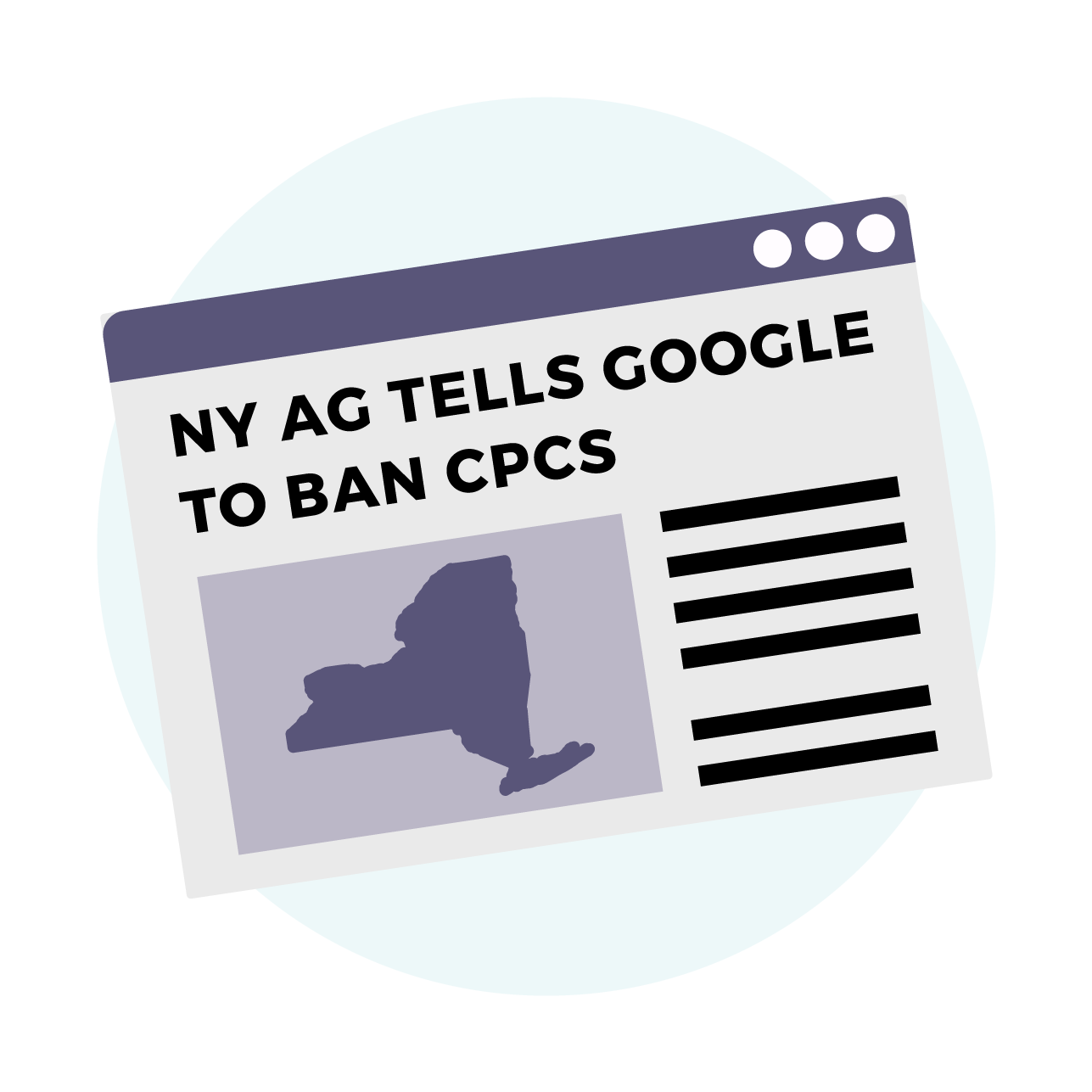
MYTH #3:
"Crisis Pregnancy Centers exist solely to intercept and dissuade pregnant people from making fully informed decisions about their healthcare such as the choice to obtain an abortion."
This myth is a direct quote from a letter written by the New York Attorney General to Google’s CEO urging them to erase us from all search results. In reality, our licensed, registered nurses provide pregnancy tests, ultrasounds, and factual abortion information to clients at NO COST to them.
The women we serve voluntarily seek our counsel because they view the decision to abort their baby as complex: impacting them physically, emotionally, relationally, and spiritually.
This myth relies on the premise that sharing information that may reveal the humanity of unborn children (like an ultrasound) or any conversation that implies a moral component to an abortion decision is peddling misinformation. At Care Net Peninsula, we reject that premise!
It was pro-abortion legislators in Virginia who, in 2020, voted to eliminate the ultrasound requirement and 24-hour waiting period that gave pregnant women the time and information they needed to “make a fully informed decision about their healthcare.”

MYTH #4:
Crisis Pregnancy Centers' staff are not licensed, medical professionals.
FALSE! A licensed OB/GYN oversees clinic operations as our Medical Director. In addition, our Registered Nurses are trained to perform limited ultrasounds to confirm pregnancies.
Dr. Jerrid Neeley, DO, OB/GYN
Medical Director
Kinta Dye, RN, BSN
Nurse Manager
Meg Williams, RN, BSN
Nurse Manager
Karla Laskowski, RN, BSN
Staff Nurse
Patty Shuster, RN
volunteer nurse
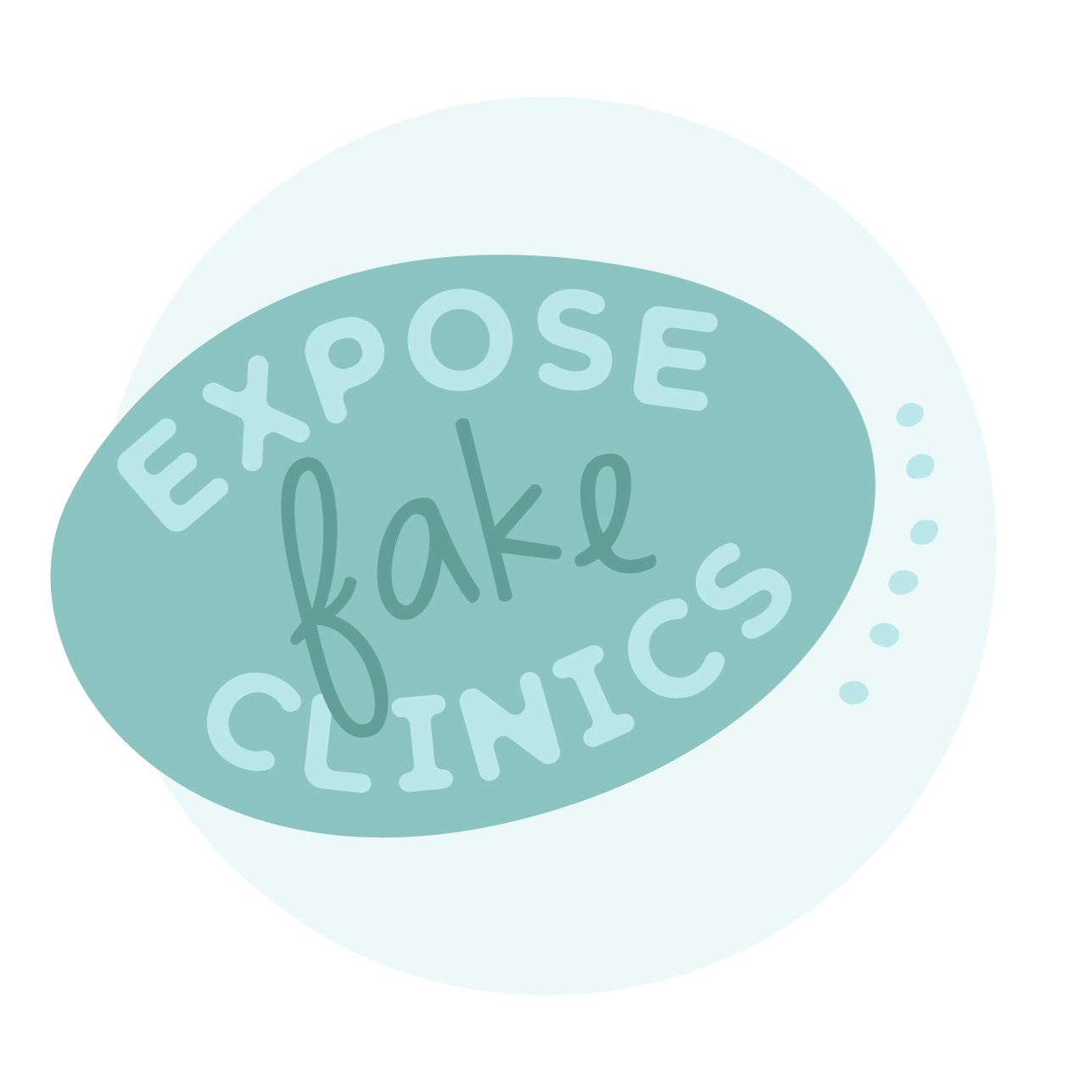
MYTH #5:
Government money is used to help fund CPCs
Care Net Peninsula does not receive funding from the government. We even decline the Medicaid payments we’re entitled to for the medical services we provide to clients.
All our funding is from local individuals and churches who stand with us to provide help and hope to local women and babies in our community.


Read More News Updates

Michelle’s Story
Click to read about Michelle and how you helped her confidently step into motherhood for the first time.
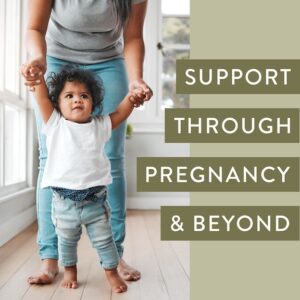
Support Through Pregnancy and Beyond
A common question that pregnancy centers often face—whether from supporters or critics of the pro-life movement—is how we continue to support a woman after she chooses to keep her child. It’s a valid question, especially for faith-based providers who are called to love and serve others in tangible ways.
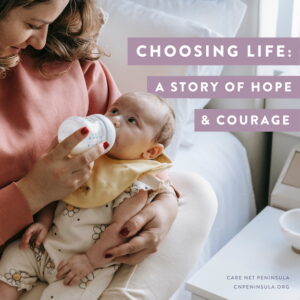
Choosing Life: A Story of Hope and Courage
Click to read our latest ministry update from our clinic.

Year-End Update: Cadie’s Story
Cadie’s story may have turned out differently if it hadn’t been for your support this year.
































